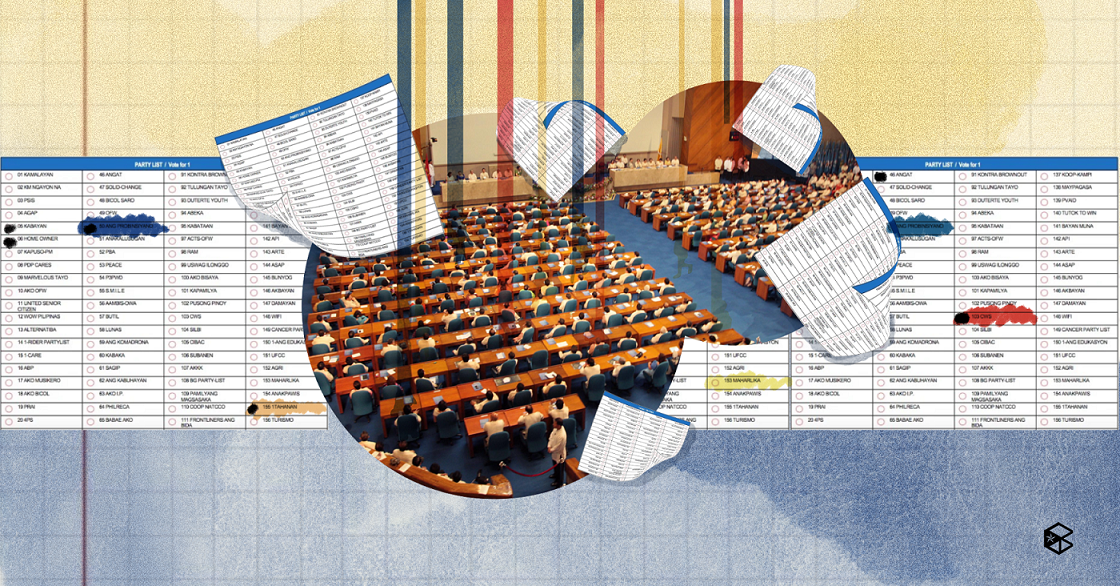Republic Act No. 7941, or the Party-List System Act of 1995, grants underrepresented sectors a chance to have representation in Congress through a national-level election. In contrast with the majority system to determine district representatives, the party-list system (PLS) made the Philippine electoral system unique and the only kind in the world. However, in 2013, a landmark decision of the Supreme Court revised its former ruling and declared that party-list groups no longer need to represent any marginalized and underrepresented sector. A nominee, who does not represent a marginalized sector, can manipulate the judicial ruling as they only need a history of their principal advocacy involvement as their backdoor pass.
Like a thief in the night
The effect of the 2013 ruling, G.R. No. 206952, allows traditional and seemingly elitist politicians to become nominees of the organizations they represent. The PLS hijacking trend prompted the law's author and former Maguindanao representative, Atty. Michael Mastura to express his dismay. Even former President Rodrigo Duterte, who had successfully secured a supermajority in Congress during his term, criticized the PLS as an "evil" system exploited by the rich and called for its abolition.
Separate research studies conducted by Philippine Center for Investigative Journalism (PCIJ) and Party-List Watch (PLWatch) show that at least 70 of the 177 party lists in the 2022 elections were identifiable with ex-politicians or political clans, and 26 were associated with big businesses. Some newly established party lists of similar characteristics won seats in the 2022 elections. Tutok to Win, a derivative of the game segment in the TV show Wowowin, had fielded their first nominee, Sam Verzosa, the co-founder of the multilevel marketing firm Frontrow. Meanwhile, the son of the former senator Bong Revilla, Bryan Revilla, filled the Agimat Partylist seat despite being the fifth nominee. His party-list claimed the other four nominees had all withdrawn. Drivers United for Mass Progress and Equal Rights–Philippines Taxi Drivers Association (DUMPER) Partylist representative Claudine Bautista-Lim is the eldest daughter of the Davao Occidental governor. She has been under fire because of the lavish wedding in Balesin during the pandemic. Votes from bailiwick regions also helped many party lists to clutch at least one seat.
Below the minimum
With underrepresented sectors already burdened to meet the minimum threshold of 2% of the total valid votes cast, election watchdogs see the worsening state as political dynasties, and business magnates threaten to push out the former's genuine on-the-ground outreach. When the system continuously fails to achieve broader representation, more societal issues are left unnoticed. The nation needs policy-makers in the House to stand up for the rights of marginalized communities. Recent developments, or the lack thereof, paints a picture of negligence: the House effectively silenced the SOGIE Bill, fisherfolks are losing their rights to fish, bike lane removal from some of the Metro Manila roads has started, and the livelihood of jeepney drivers is at stake amidst the government's modernization program.
According to a study, progressive party-list representatives are more motivated to propose bills than district legislators and the president's co-partisans. But with the PLS hardly serving its intended purpose and the failure of electing the grassroots organizations, significant bills for the marginalized may never see the light of day.
Cut the losses
PLS is due for reform, not for its abolition. However, necessary changes involve multiple pursuits. Some political scientists and experts suggest representation should start at the local level. Aside from the necessary PLS reform on criteria for nominees, careful filtering of the Commission on Elections (COMELEC), and removal of the 2% threshold and three-seat cap, the representatives must pass the anti-dynasty law. Not only does it block the political scions from abusing constitutional pork and perks, but it enables power-sharing with the marginalized.
As the House continues the charter change talks, it is high time to include the marginalized sector representation in the discussion. Mass-based organizations should also create coalitions instead of filing separate candidacies to minimize the unfair advantage of the political competition against the fragmented progressive groups.
The improving voter turnout in PLS over the years shows increased awareness. Educational programs should continue to motivate the electorate to put more figureheads of program-based parties than personality-oriented ones in the House.
PLS is still an essential component of the political system of the nation. Undoubtedly both an innovation and inclusion, the present law can evolve into a well-designed electoral system that champions policies rather than patronage.


